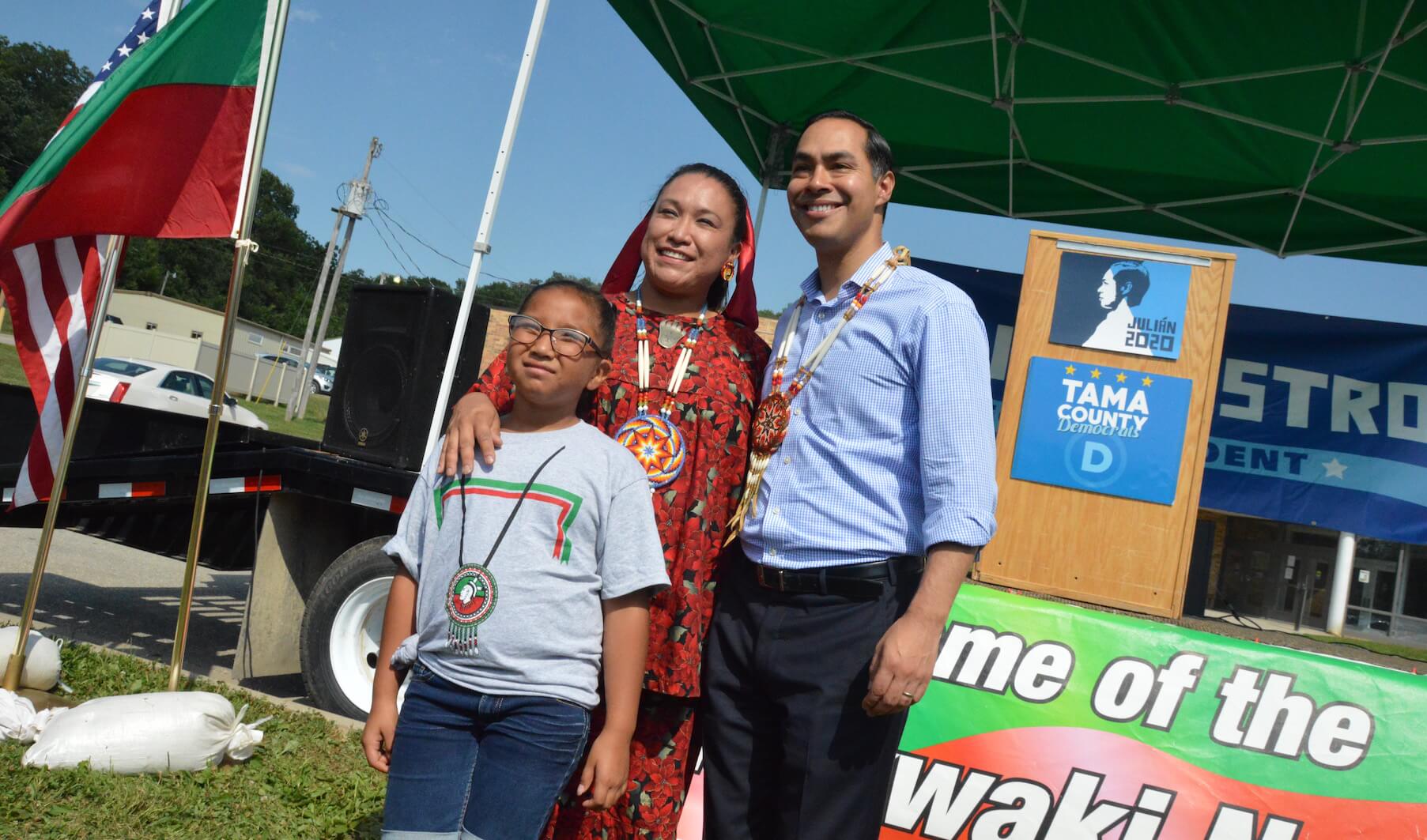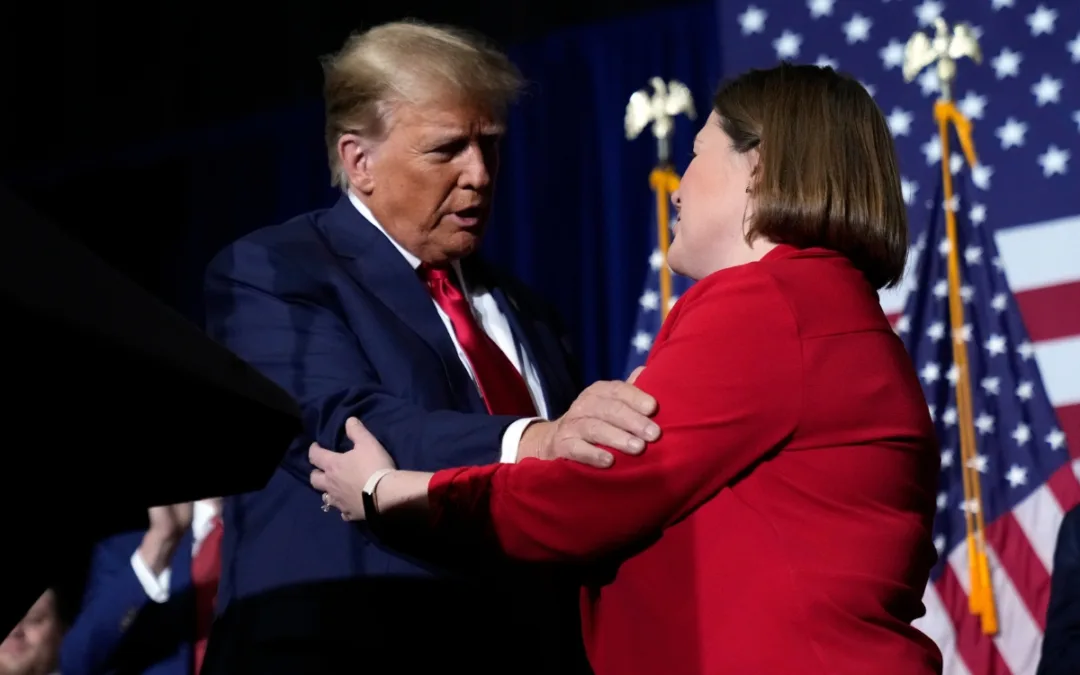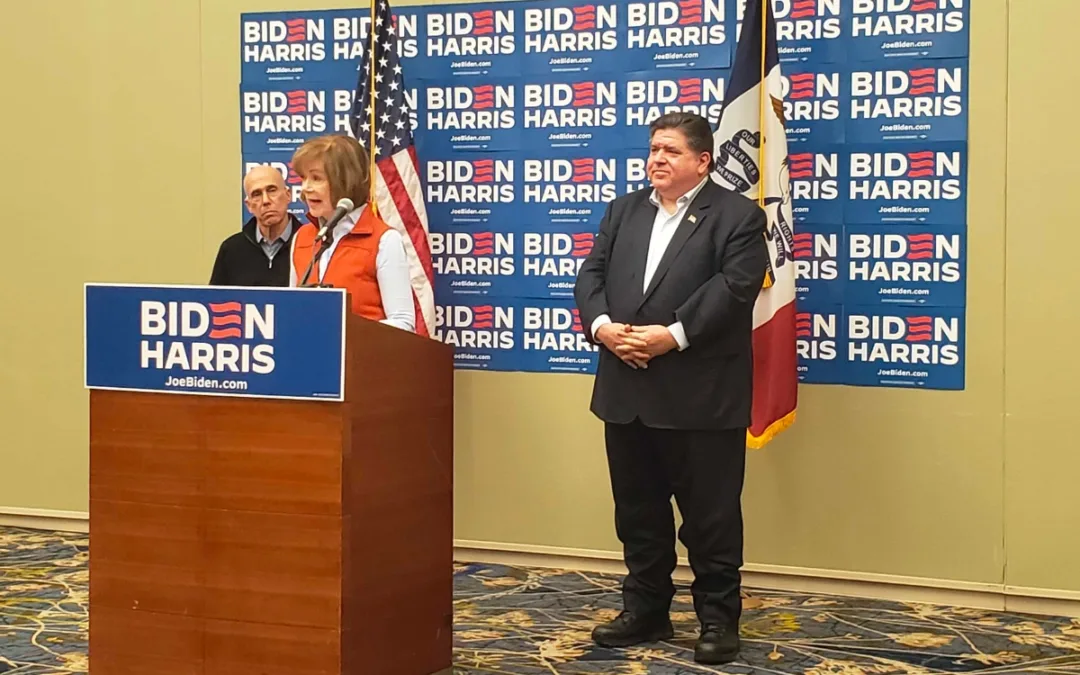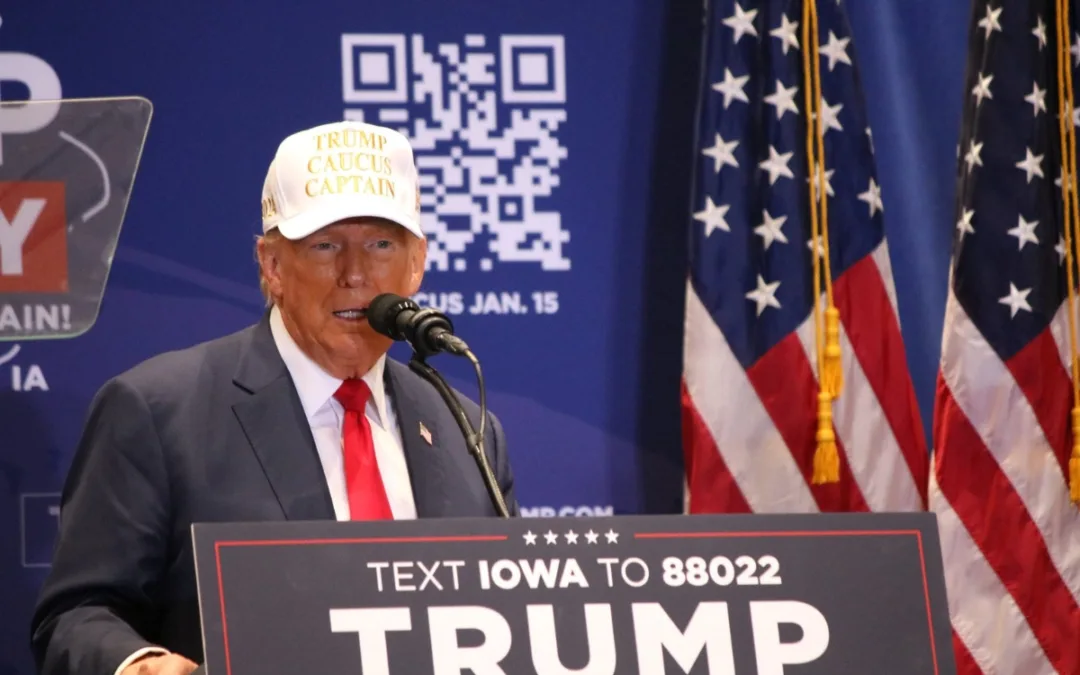
The first gathering of presidential candidates to talk specifically about issues important to Native Americans will take place next month in an Iowa city well-versed in the concerns of tribal nations.
The Frank LaMere Presidential Candidate Forum is a first-of-its-kind event, “focused entirely on the concerns of Native Americans.”
The two-day event will be held Aug. 19 and 20 in Sioux City in Western Iowa.
Sioux City’s population is about 2% Native American, according to the U.S. Census Bureau. With 1,373 American Indian and Alaska Natives in Sioux City, it has the largest native population in Iowa, according to the State Data Center of Iowa.
According to Four Directions, a nationwide voter engagement organization for Native Americans, five candidates confirmed their attendance as of July 25: Sen. Bernie Sanders of Vermont; former U.S. Rep. John Delaney of Maryland; Montana Gov. Steve Bullock; self-help author Marianne Williamson; and Julian Castro, the former secretary of housing and urban development.
“Candidates want to say yes to this event, because they understand voter turnout is increasing dramatically in Indian Country,” said O.J. Semans, co-executive director of Four Directions, in a statement.
The forum was named in honor of the late Frank LaMere, a prominent Native American rights activist from South Sioux City who died in June.
“No candidate should take the Native American vote for granted,” Semans said. “But when candidates demonstrate they understand the issues and will work for the betterment of our people and our communities, they can earn our votes.”
While Native American voters often vote overwhelmingly Democratic, turnout percentages can often lag other groups.
Candidates will be asked to explain how their policies on health care, education and infrastructure would serve Native American communities with unique needs, in addition to issue-specific topics like treaty obligations and sovereignty; murdered and missing indigenous women; and Remove the Stain Act, a House bill revoking Medals of Honor for troops who murdered Native Americans during the Wounded Knee Massacre.
Activists Bring Concerns Forward
Oliviah Walker, deputy director for tribal operations with Iowa’s Meskwaki Nation, said in Tama County she appreciated candidates’ interest in tribal communities, but “we just don’t want it to be about optics.”
“We really want people who are interested and engaging their platforms in promoting indigenous sovereignty and having some sort of tribal platform put together,” said Walker, of Marshalltown.
Castro visited the Meskwaki Settlement last week; Bullock made a stop there earlier in the year and plans a return next month. Sanders held a rally at the settlement during the last caucus cycle, and has had Native American activists speak during introductions at some of his events this year.
[inline-ad id=”0″]
Walker said she appreciated Castro’s policies to promote tribal sovereignty, protect treaty rights and fight for missing and murdered indigenous women.
Climate change also was an issue Walker wanted presidential candidates to prioritize.
“I’d really like to see folks looking at how we can develop regenerative economies and not extractive economies,” she said.
Walker described Bullock as a “really thoughtful” candidate when engaging with the tribe. She liked Sanders’ policy “vision” and Sen. Elizabeth Warren’s “approach” to the campaign, but was waiting to see her release an indigenous platform.
Christine Nobiss, director of SHIFT, Seeding Sovereignty’s political engagement program, said she was “impressed” Castro was the first presidential candidate to “come out with such a comprehensive policy on Indigenous Peoples and our nations, and how the federal government can better what’s happening within our communities.”
Along with Four Directions, Seeding Sovereignty will co-host the Frank LaMere forum, Nobiss said.
“Basically, what it comes down to is our sovereignty. Is there a president that’s finally going to step up and actually deal with that issue?” asked Nobiss, Plains Cree-Saulteaux of George Gordon First Nation, now living in Iowa City. “Right now, we still aren’t independent nations. And in the end, we really do need somebody to address this elephant in the room — the fact that our treaties, none of them, remain intact. The government has always reneged on their promises and encroached upon our land, regardless of treaties. I would love to see somebody actually take this issue on for the first time ever.”
In addition to co-hosting the presidential forum, Seeding Sovereignty also is hosting an Indigenous Political Engagement Summit in Des Moines from Aug. 22-25 as part of the National Network Assembly.
“I think this is happening at this moment because, look who’s in power right now, look who our president is,” Nobiss said. “To have him come into power and try to strip away a lot of the rights and safeties that we have fought for is devastating.”
Candidates Put Forth Policies
Castro, one of the forum’s participants, recently visited the Meskwaki Settlement in Tama County, where he delved into his “People First Indigenous Communities Policy.”
Castro dedicates an entire section of his campaign website to the policy, developed to “respect the sovereignty of indigenous communities and honor the commitments that the United States government has made over the years to indigenous communities.”
As president, Castro said he would “fully fund” the Indian Health Service; improve housing affordability and infrastructure; “defend the land sacred to indigenous communities from destructive activities like fossil fuel extraction”; and ensure their cultural independence was preserved.
“The Meskwaki Nation, and so many tribes across the United States, have been a part of making our country the beautiful place of opportunity that it is today,” Castro said last week. “And we need to ensure that more of that opportunity reaches indigenous communities.”
Sanders and Williamson also have laid out policy proposals specific to Native Americans.
Williamson wants to end construction of the Keystone pipeline, an oil pipeline project that cut through Native American land; protect tribal sovereignty, religious and cultural freedom; and return the Black Hills of South Dakota to the Sioux Nation.
“One of the great tragedies of American history, not only for Native Americans, but for white Europeans as well, is that we denied ourselves the extraordinary cultural and spiritual possibilities of what might have been,” Williamson’s website states. “Had a partnership, rather than a dominator model, of social organization been chosen centuries ago, not only Native American culture, but also white American culture, would now be much more advanced.”
In describing his plan to “empower tribal nations,” Sanders said the Native American population was treated like “third class citizens.”
Sanders said he would restore and expand the Violence Against Women Act “to provide critical resources to women in Indian country and allow all tribes to prosecute non-Native criminals”; implement legislation in Congress to prioritize federal funding for tribal nations; and enact a Green New Deal with “a federal job guarantee to rebuild Native communities.”
“As President, Bernie Sanders will continue standing with Native Americans in the struggle to protect their treaty and sovereign rights, to advance traditional ways of life, and to improve the quality of life for Native communities,” said Misty Rebik, Sanders’ Iowa State Director, in a statement. “They will have a seat at the table in this presidency, like never before.”
While former congressman Delaney does not have a policy section on his website dedicated to Native concerns, he is one of the forum’s confirmed attendees.
“John Delaney believes in fairness and opportunity for all. For too long, Native Americans haven’t been heard from in our political process, especially at the presidential level,” said Monica Biddix, Delaney’s Iowa State Director, in a statement. “This forum is an important step forward and is a tremendous opportunity for candidates to discuss their platform with the community and listen to their concerns.”
By Elizabeth Meyer
Posted 7/31/19
Politics

Biden marks Earth Day by announcing $7 billion in solar grants
The Biden administration on Monday announced the recipients of its Solar For All Program, a $7 billion climate program that aims to lower energy...

6 terrifying things that could happen if the Comstock Act is used to target abortion
Does 1873 sound like a really, really long time ago? Well, that’s because it is—but if Republicans and far-right anti-abortion activists have their...
Local News

No more Kum & Go? New owner Maverik of Utah retiring famous brand
Will Kum & Go have come and gone by next year? One new report claims that's the plan by the store's new owners. The Iowa-based convenience store...

Here’s a recap of the biggest headlines Iowa celebs made In 2023
For these famous Iowans, 2023 was a year of controversy, career highlights, and full-circle moments. Here’s how 2023 went for the following Iowans:...




